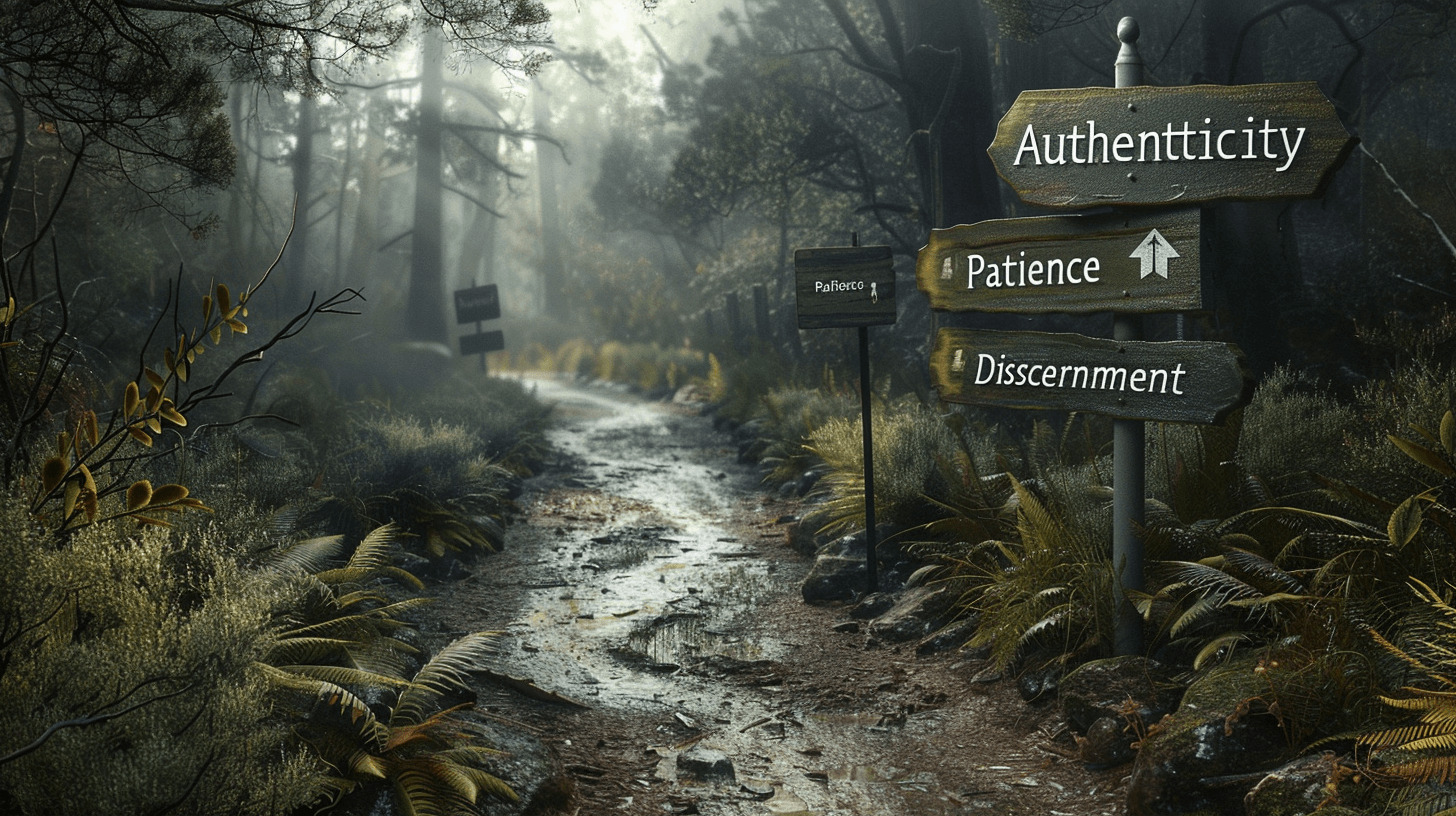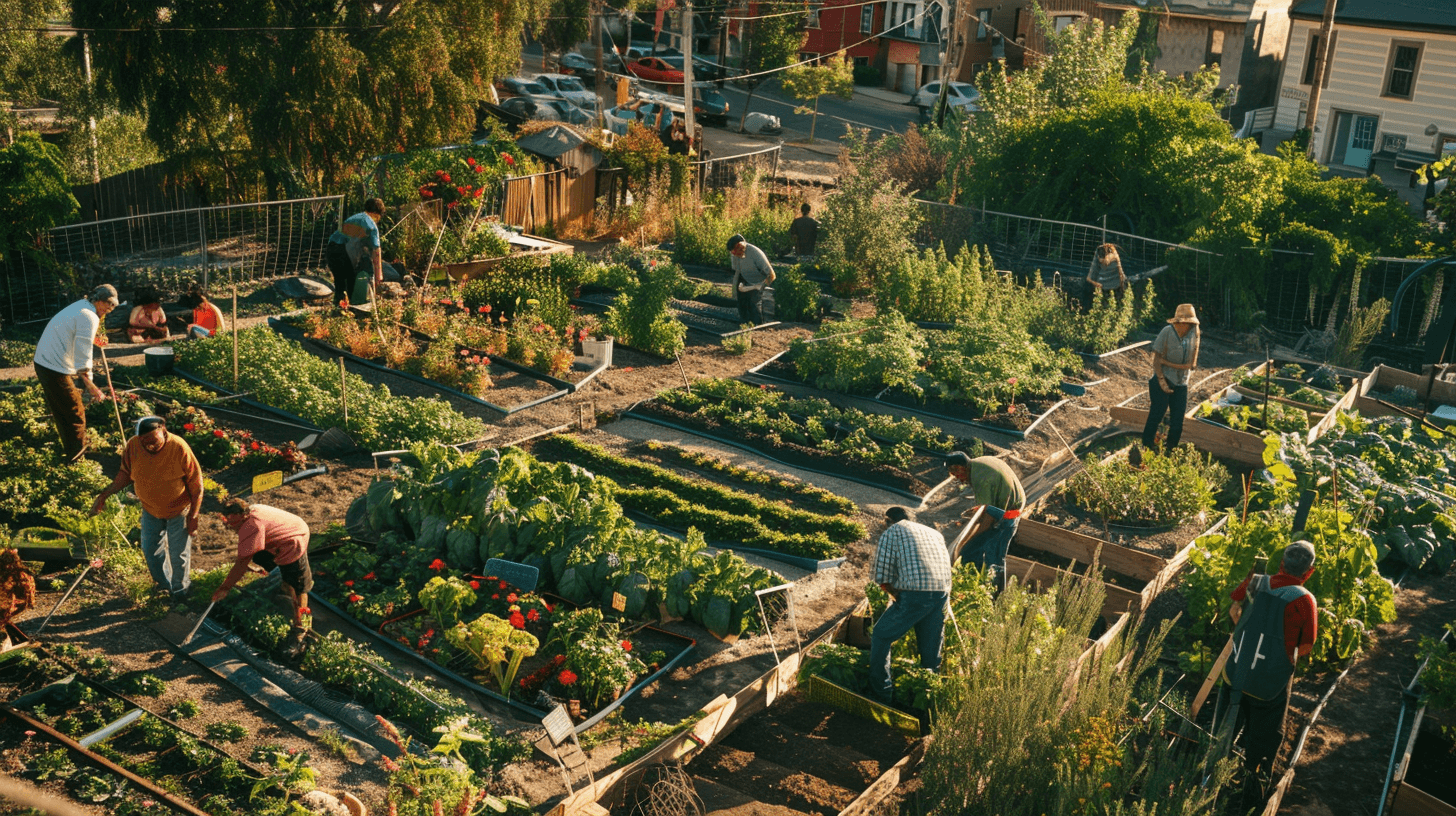Introduction

In the quiet predawn hours of a typical London morning, Eckhart Tolle found himself at the precipice of despair. At age 29, he was burdened by a profound existential dread that rendered each day grayer than the last. On one particularly restless night, as he wrestled with thoughts of his meaningless existence, a moment of sheer clarity broke through his somber reflections. Tolle realized that the relentless voice in his head—the one tirelessly narrating every failure and fear—was not truly him. This insight didn’t stem from the Buddhist texts he had pored over or the Christian doctrines he had studied; it was a spontaneous awakening, blending the essence of these spiritual teachings with his own deep-seated inquiries.
This epiphany arrived as he questioned the very nature of his thoughts and identity. “Who is the ‘I’ that cannot live with the self?” he pondered. In this moment, Tolle experienced what many spiritual traditions hint at but few articulate plainly: a profound disidentification from the self. It was as if he had dipped into the tranquil waters of Buddhist Nirvana and emerged into the divine union described in Hindu Moksha, yet all within the familiar confines of his London flat.
Tolle’s journey did not follow a traditional path laid out by any one doctrine. Instead, he wove elements from different spiritual traditions into a personalized tapestry that resonated with his unique experiences and existential searches. This blend of wisdom led to his transformation from a depressed scholar to a spiritual luminary, illustrating that enlightenment is not a one-size-fits-all journey but a deeply personal voyage.
This story of personal revolution and spiritual awakening serves as a beacon to anyone seeking their path to enlightenment. It shows that sometimes, the most profound insights come from within, informed but not confined by the rich tapestry of world spiritualities. Tolle’s journey underscores the value of a tailored approach to spiritual discovery—one that respects and utilizes individual backgrounds, beliefs, and questions as the foundation for profound personal change.
In today’s mosaic world, where diverse beliefs and cultural backgrounds shape each individual uniquely, the journey towards spiritual enlightenment cannot be confined to a one-size-fits-all pathway. Just as each person’s life story is distinct, so too should be their spiritual path. Tailoring this journey to fit personal experiences and values isn’t just beneficial; it’s essential.
Personalized spiritual practices allow for a deeper, more meaningful engagement with the sacred. They respect the individual’s background, incorporating elements that resonate personally and discarding those that do not. This customization makes the spiritual path not only more relevant but also more profound, as it connects with the core of an individual’s identity and aspirations. It recognizes the complexities of modern life, where traditional roles and norms are continuously evolving.
Moreover, a tailored approach empowers individuals to take active roles in their spiritual development, rather than passively following prescribed doctrines. This active engagement fosters a deeper connection to the practices and their outcomes, enhancing both personal growth and spiritual insight. It transforms the spiritual journey into a dynamic interplay between the individual’s inner world and the external teachings, making it a living, breathing experience that evolves with the seeker’s own life journey.
As we delve deeper into understanding and designing our spiritual paths, remember that this is not just about adopting a method—it is about embracing an evolution in spiritual practice that meets the intricate needs of modern souls. You are invited to explore this journey, to shape it with your hands and spirit, and to find in it a reflection of your deepest self. Let this tailored path not only guide you to enlightenment but also transform the way you view yourself and the world. Let it be your unique story of awakening.
Understanding Spiritual Enlightenment

Spiritual enlightenment, a concept revered across many traditions, offers a profound understanding and liberation unique to each belief system.
Buddhism: In Buddhism, enlightenment is the attainment of Nirvana—a state transcending the mundane experiences of life and suffering. This liberation is not merely an escape but a profound realization of the impermanence and interconnectedness of all things. Achieving Nirvana means breaking free from the continuous cycle of rebirth (samsara), where each cycle is marked by suffering and desire. The path to this state involves deep meditation, ethical living, and the development of wisdom and compassion. This journey culminates in a serene detachment from all desires and a complete cessation of suffering.
Hinduism: In Hinduism, the concept of enlightenment is known as Moksha. This state represents the ultimate release from the cycles of birth and death that are driven by karma (the law of moral causation). Moksha is achieved through the realization of one’s true self (Atman) and its unity with Brahman, the universal spirit. This realization brings about not only a cessation of personal suffering but also a blissful experience of infinite consciousness and being. The pursuit of Moksha often involves disciplined spiritual practices, devotion, and the guidance of sacred texts and gurus.
Western Mysticism: Contrasting with these Eastern traditions, Western mystical perspectives often emphasize an internal awakening that is deeply personal and direct. This form of enlightenment is characterized by an experiential encounter with the divine, where the individual directly experiences a profound reality that transcends ordinary perception. This may manifest as a sudden moment of insight or a gradual deepening of understanding, marked by feelings of profound peace, unity, and a sense of sacred presence in everyday life.
Each tradition offers a distinct path to spiritual enlightenment, yet they share a common promise: the profound transformation of the individual’s experience of the world. Whether through the cessation of suffering, the realization of unity with the divine, or a personal encounter with a deeper reality, enlightenment represents a pinnacle of spiritual achievement that echoes with the universal quest for meaning and fulfillment.
Embrace Tranquility: Eckhart Tolle’s Path to Mental Clarity Through Meditation
Modern Interpretations of Enlightenment
Contemporary views on enlightenment have evolved, blending ancient wisdom with modern insights to make the concept more accessible and relevant. Modern philosophers and spiritual leaders redefine enlightenment as a state of heightened awareness, inner peace, and profound connection to the present moment. Unlike historical views that often required renunciation and asceticism, today’s interpretations emphasize integrating enlightenment into everyday life.
Eckhart Tolle, in his seminal work “The Power of Now,” describes enlightenment as the realization of being in the present moment, free from the ego’s constraints. This perspective resonates with many, offering practical guidance on achieving mental clarity and emotional balance. Deepak Chopra blends traditional Indian spirituality with modern science, presenting enlightenment as a holistic state of well-being achieved through meditation, mindfulness, and self-awareness.
Modern Buddhist teachers like Thich Nhat Hanh emphasize mindfulness and compassionate living. His teachings, rooted in ancient Buddhist practices, are adapted to address contemporary issues such as stress and anxiety, making enlightenment attainable for a broader audience. These modern interpretations promote personal growth and spiritual development by encouraging individuals to find peace and purpose in the present, fostering a deeper understanding of themselves and their connection to the world.
Psychological Benefits of Spiritual Practices
Scientific research has increasingly validated the psychological and physiological benefits of spiritual practices like meditation and mindfulness. Numerous studies demonstrate that these practices significantly reduce stress and anxiety. For instance, a study published in the Journal of the American Medical Association (JAMA) found that mindfulness meditation can reduce symptoms of anxiety, depression, and pain.
Meditation and mindfulness also enhance emotional well-being. A study from Harvard Medical School showed that regular meditation practice can lead to increased levels of happiness and emotional stability. This is supported by neuroscientific research, such as findings by Dr. Richard Davidson, which reveal that mindfulness practices can change brain function, improving areas related to emotional regulation and resilience.
Moreover, these practices boost cognitive function. Research published in Psychological Science indicates that meditation improves attention, memory, and executive function. Dr. Sara Lazar, a neuroscientist at Harvard, notes, “Meditation not only reduces stress but also changes the brain’s structure, promoting better mental health and cognitive capabilities.”
These psychological benefits significantly contribute to the pursuit of spiritual enlightenment. By fostering a calmer, more focused mind, meditation and mindfulness help individuals connect deeply with their inner selves and the present moment, making these practices invaluable for both spiritual and mental health.
The Need for a Tailored Journey

Individuality in Spiritual Practices
Understanding and embracing the individuality in spiritual practices is crucial for a meaningful journey. Every person’s spiritual path is unique, shaped by their background, preferences, and life circumstances. By tailoring spiritual practices to align with these personal aspects, one can enhance the effectiveness and engagement in their spiritual activities. For instance, a busy professional might find short mindfulness sessions throughout the day more feasible than lengthy meditation practices. On the other hand, someone who loves nature might integrate outdoor meditation or walking meditations into their routine. These personalized adjustments not only make the practices more accessible but also ensure they resonate more deeply with the individual’s lifestyle. Encouraging readers to reflect on their own needs and preferences can help them identify the spiritual practices that best suit their lives, leading to a more meaningful and sustainable spiritual journey.
Case Studies
Real-life examples highlight the benefits of a tailored approach to spirituality. Consider an individual who struggled to find fulfillment through traditional religious practices. After experimenting with various spiritual activities, they discovered a unique combination of yoga, journaling, and community service that brought them peace and purpose. Their initial journey was marked by trial and error, but ultimately, their personalized practice led to profound spiritual growth and contentment.
Another example involves someone who blended elements from different traditions. By integrating Buddhist meditation techniques with Christian prayer rituals, they crafted a balanced spiritual routine that honored their diverse beliefs. This eclectic approach helped them achieve a sense of harmony and inner peace, illustrating the power of a tailored spiritual path.
These stories demonstrate that anyone can craft a spiritual journey reflecting their identity and aspirations. By exploring and experimenting with different practices, individuals can find what truly resonates with them, fostering a deep and authentic spiritual connection.
Designing Your Spiritual Path

Assessing Your Spiritual Needs
To begin designing your personalized spiritual path, it’s essential to identify your specific spiritual needs. Start by reflecting on what you are seeking from your spiritual journey. Are you looking for peace, understanding, connection, or something else entirely? Consider moments in your life when you felt most at peace or spiritually connected. What activities or environments contributed to those feelings? Reflecting on these questions can help you pinpoint what aspects of spirituality resonate most with you.
Ask yourself:
- What are the moments when I feel most spiritually fulfilled?
- What activities or practices have brought me the greatest sense of peace and connection?
- In what environments do I feel most spiritually alive?
By answering these questions, you can begin to understand your spiritual needs. This self-awareness is the first step toward creating a spiritual path that truly fulfills you. Remember, there is no right or wrong answer; your spiritual journey is unique to you. Embrace this individuality as you explore and define your spiritual needs.
Integrating Diverse Practices
Once you have a clearer understanding of your spiritual needs, you can start to integrate diverse practices to create a holistic and fulfilling spiritual journey. An eclectic approach allows you to draw from various traditions and innovations, combining their strengths to suit your unique preferences.
Consider incorporating practices from different traditions. For example, you might combine Buddhist meditation techniques with Christian contemplative prayer, or blend the physical discipline of yoga with modern mindfulness exercises. This fusion can create a balanced and enriching spiritual practice.
Here are some practical tips for integrating diverse spiritual practices:
- Experiment and Explore: Try different practices to see what resonates with you. Attend workshops, read books, or join online communities to learn about various spiritual traditions.
- Start Small: Introduce new practices gradually. Begin with a few minutes of meditation each day or a weekly yoga session, and build from there.
- Be Flexible: Allow your spiritual practice to evolve over time. What works for you now might change as you grow and learn.
- Create a Routine: Establish a regular spiritual routine that includes a mix of practices. This can help you maintain consistency and deepen your spiritual experience.
By experimenting and combining different elements, you can create a personalized spiritual practice that is both meaningful and effective. Remember, the goal is to find what works best for you and helps you feel spiritually fulfilled.
Tools and Resources
To support your personalized spiritual journey, various tools and resources can be incredibly helpful. These resources can provide guidance, inspiration, and practical assistance as you explore and develop your spiritual path.
Apps:
- Headspace: Offers guided meditations and mindfulness exercises to help you build a consistent practice.
- Insight Timer: Provides a vast library of meditations, music, and talks from spiritual teachers worldwide.
Books:
- “The Power of Now” by Eckhart Tolle: A profound guide to spiritual enlightenment and living in the present moment.
- “The Untethered Soul” by Michael A. Singer: Explores the concept of inner freedom and spiritual growth.
Retreats and Online Courses:
- Spirit Rock Meditation Center: Offers retreats and online courses focused on mindfulness and meditation.
- Gaia: Provides a variety of online courses on yoga, meditation, and spiritual development.
These tools and resources can enrich your spiritual journey, providing valuable insights and practical support. Explore these options to find what resonates with you and enhances your practice. By leveraging these resources, you can deepen your understanding and commitment to your personalized spiritual path.
Challenges and How to Overcome Them

Explore the common challenges that individuals face on their spiritual journeys and provide practical strategies to overcome these obstacles, ensuring readers can maintain authenticity and depth in their spiritual quest.
Common Pitfalls
On the path to spiritual enlightenment, individuals often encounter several challenges. One significant issue is the commercialization of spirituality, where genuine practices are sometimes overshadowed by profit-driven motives. This commercialization can lead to confusion and a superficial understanding of spirituality, as people may invest in trendy but shallow practices that offer quick fixes rather than deep, meaningful growth.
Another challenge is misguidance. Individuals may follow practices or teachings that do not align with their true spiritual needs, often leading to frustration and disillusionment. This misalignment can stem from following charismatic but unqualified leaders or adhering to popular practices without proper discernment.
Feeling overwhelmed is also a common pitfall. The pressure to achieve rapid spiritual progress or the attempt to incorporate too many practices at once can be daunting. This overload can result in burnout and a sense of failure, discouraging further spiritual exploration.
Examples include:
- A person investing heavily in expensive spiritual retreats and products that promise instant enlightenment but provide little lasting value.
- Following a spiritual leader whose teachings don’t resonate with their personal beliefs, leading to internal conflict.
- Trying to maintain a rigorous daily routine of multiple spiritual practices, causing stress and fatigue.
Strategies for Staying on Your Path
To maintain authenticity and depth in your spiritual quest, start with clear intentions and realistic goals. Focus on the quality of your practices rather than the quantity. It’s better to engage deeply with a few meaningful practices than to spread yourself thin across many.
Be selective about the sources you follow. Seek guidance from credible and respected spiritual leaders or communities. Research their backgrounds and teachings to ensure they align with your values and needs. Regularly assess your spiritual practices to ensure they remain relevant and fulfilling. If something no longer resonates, don’t hesitate to adapt or change your approach.
Patience and self-compassion are crucial. Spiritual growth is a gradual and continuous process. Avoid comparing your journey to others and focus on your own progress. Remember that setbacks are a natural part of the journey and offer opportunities for learning and growth.
To stay grounded, incorporate regular self-reflection and journaling into your routine. This can help you stay connected to your intentions and track your progress. Additionally, connecting with a supportive spiritual community can provide encouragement, accountability, and shared wisdom.
Sustaining and Growing Your Spiritual Practice

Long-Term Commitment
Maintaining a long-term commitment to spiritual practices is essential for sustained growth and deepening of one’s spiritual journey. Perseverance and regular self-reflection are key components of this commitment. Setting realistic goals can help you stay motivated and on track. For example, start with manageable daily meditation sessions and gradually increase the duration as you become more comfortable. Creating a consistent practice schedule ensures that spiritual activities become an integral part of your routine.
Celebrating small milestones is another effective way to stay committed. Acknowledge and reward your progress, no matter how minor it may seem. This positive reinforcement can boost your motivation and dedication.
Self-reflection plays a crucial role in maintaining long-term commitment. Regularly evaluate your progress, recognize your achievements, and identify areas for improvement. Journaling is a valuable tool for this process. By documenting your thoughts, experiences, and insights, you can track your spiritual journey and stay connected to your goals. Remember, spiritual growth is a gradual and ongoing process that requires patience and dedication. Embrace this journey with an open heart and a willing spirit.
Joining a Community
Joining a supportive community can significantly enhance and sustain your personal spiritual growth. Being part of a community offers numerous benefits, such as shared experiences, mutual encouragement, and access to collective wisdom. Different types of spiritual communities include local meditation groups, online forums, and spiritual retreats. These communities provide a platform for individuals to connect, share, and learn from one another.
Finding a community that aligns with your beliefs and values is crucial. A supportive community fosters a sense of belonging and offers the encouragement needed to stay committed to your spiritual practices. To engage effectively with a community, participate in group activities, attend regular meetings, and contribute to discussions. Active involvement helps build strong connections and reinforces your commitment to your spiritual path.
A supportive community can provide accountability, inspiration, and guidance. By surrounding yourself with like-minded individuals, you gain access to a network of support that can help you navigate challenges and stay focused on your spiritual journey. This sense of community not only enhances your practice but also deepens your spiritual experience, making it more enriching and fulfilling.
Conclusion

In concluding our exploration of tailored spiritual enlightenment, we’ve uncovered the transformative power of personalized spiritual practices. Emphasizing a bespoke approach, we’ve seen how diverse interpretations and real-life examples offer a blueprint for deeper fulfillment. Practical advice on designing your spiritual path—assessing needs, integrating diverse practices, and leveraging tools—prepares you for potential challenges and reinforces the importance of community support and long-term commitment.
Remember, your spiritual journey is uniquely yours. Embrace perseverance, engage in regular self-reflection, and rely on community support to enrich your path. As Lao Tzu said, “The journey of a thousand miles begins with one step.” Reflect on the steps you will take today to begin or deepen your journey towards true self-discovery and spiritual fulfillment. This marks not just the end of a discussion but the beginning of your transformative journey.







